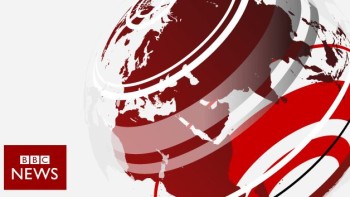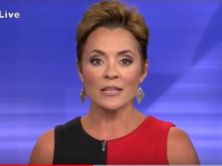
The BBC’s Today program interviewed Lord Lawson, a climate change “doubter”, about climate change last August. That interview was subject to two complaints to the UK broadcast regulator OfCom.
In the interview, Lawson claimed England had an “absurd climate-driven energy policy,” that renewable energy “is heavily subsidised,” and that “conventional energy is reliable and cheaper.” He also slammed Al Gore, who was interviewed before him, calling Gore’s interview and new documentary “complete nonsense.”
Lawson said “there hasn’t been” an increase in extreme weather and that “average world temperature, has slightly declined.” iMediaEthics wrote about the interview back in October, when the BBC’s Executive Complaints Unit criticized the BBC for not challenging him.
OfCom noted that back in 2014, the BBC received a complaint over another interview with Lawson because the BBC didn’t introduce him clearly. (At that point, the BBC was still self-regulated; last year, OfCom began regulating the BBC.) The BBC only said he was “the founding chairman of the Global Warming Policy Foundation which is an all-party think tank.” As such, the BBC said the program didn’t make “sufficiently clear that he represented a minority viewpoint on the science of climate change,” OfCom explained.
In responding to the complaint, the BBC acknowledged the interview didn’t meet its standards.”The BBC said it had publicly acknowledged there were aspects of the coverage during the programme on 10 August 2017 which did not meet those standards,” OfCom wrote. “It had already taken action to address this lapse in standards which, it argued, were adequate, appropriate and proportionate in the circumstances.”
Those specific things the BBC did included:
- publishing a news story and broadcasting a segment on the criticisms of the interview with information about errors Lawson made;
- posting a response on its website;
- “following the established process for responding to individual complainants who raised concerns about the programme and upheld aspects of the complaints.”
While the BBC told OfCom that “there is general agreement that scientific evidence shows global climate is changing, and the change is predominantly man-made,” the BBC explained it wanted to air “other perspectives,” and especially Lawson’s because “he represents a point of view on the economics of climate change which is broadly shared by the current US administration.”
In terms of complaints over specific claims made by Lawson, the BBC argued they were OK in context. The BBC “submitted the audience would have understood Lord Lawson to be offering an opinion contrary to Mr. Gore’s,” according to the BBC. Further, the BBC argued some of Lawson’s claims were “arguable,” noted it can’t “control the accuracy of comments made by interviewees,” and pointed to its statements addressing the errors on its news site.
Specifically, OfCom called out two statements made by Lawson that were both wrong and not “sufficiently challenged.” Those statements are:
- “all the experts say there hasn’t been” an increase in extreme weather events and that the IPCC “concedes” this fact
- “during this past 10 years… average world temperature
has slightly declined”
“OfCom’s most significant concern was that the BBC had identified a second breach of standards in an item involving the same contributor, discussing the same topic in the same programme as had occurred in 2014,” OfCom ruled. “These similarities to the previous BBC finding were a key factor in our decision to investigate this case, following the BBC’s decision to partially uphold the recent complaints as breaches of the BBC’s Editorial Guidelines.”
Futher, OfCom called out the BBC for not identifying Lawson’s “stance on climate change.”
“Given Lord Lawson’s well known sceptical stance on the broader science of climate change, and the fact these issues were addressed in earlier interviews on the programme, the editorial team
could have reasonably anticipated there was a risk that Lord Lawson might raise these arguments,” OfCom ruled.
“In our view, the BBC should have planned for that eventuality and the presenter should have been prepared to provide challenge and context to Lord Lawson’s views as appropriate,” OfCom continued. “The BBC’s failure to do this led to significant inaccuracies being broadcast in the interview with Lord Lawson in the programme on 10 August 2017. Critically, these
inaccuracies were allowed to stand without challenge or clarification during that broadcast.”
iMediaEthics asked the BBC for a response to the OfCom ruling; the BBC only pointed to its internal complaints findings on the complaints and the Today response that Lawson has the same position as the U.S. administration and that the BBC fact checked his claims the next day.






